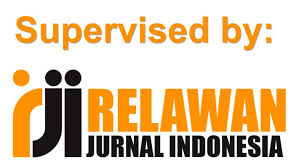Politik Hukum dalam Pengelolaan Sumber Daya Alam: Antara Kepentingan Negara dan Hak Masyarakat Adat
DOI:
https://doi.org/10.37092/hutanasyah.v4i1.1191Abstract
Natural resource management in Indonesia is a complex phenomenon characterized by the state's efforts to drive economic growth while simultaneously protecting the rights of indigenous legal communities that have long preserved environmental balance. The constitutional basis provided by Articles 33 and 18B of the 1945 Constitution affirms the state's authority to optimize natural wealth for the prosperity of the people, while accommodating local autonomy and recognizing customary rights. This analysis was conducted using a normative legal approach combined with qualitative and anthropological perspectives to examine legal documents ranging from Law No. 5 of 1960, Law of the Republic of Indonesia No. 23 of 1997, and Law No. 32 of 2009, to the recent updates through Law No. 32 of 2024, Law No. 17 of 2019, Law No. 3 of 2020, and Law of the Republic of Indonesia No. 1 of 2014, in addition to reviewing the Draft Law on Indigenous Legal Communities (RUU MHA). The evaluation results reveal a fundamental difference between the national regulatory framework and the implementation of customary legal norms, which leads to inconsistent natural resource management practices and uneven distribution of benefits. These findings underscore the importance of reformulating regulations through the active involvement of various stakeholders and the thorough integration of indigenous legal communities' roles at every stage of policy formulation to create a more inclusive, equitable, and sustainable natural resource governance.
Downloads
Published
How to Cite
Issue
Section
License
Copyright (c) 2025 Sugianto, Tarmudi, Ahmad Royhan Bustomi, Derrel Azhar Sugianto, Fardan Zidane Juniawan

This work is licensed under a Creative Commons Attribution-NonCommercial-ShareAlike 4.0 International License.



1.png)





